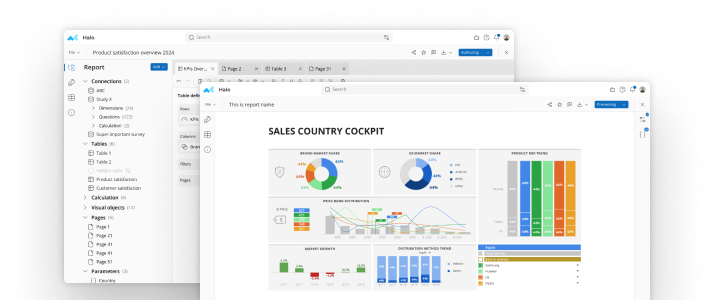
Customer feedback is an invaluable tool for businesses to understand and improve their products, services, and overall customer experience. However, there are instances when customer feedback can backfire, leading to unintended negative consequences. In this blog, we explore the potential pitfalls of customer feedback and offer practical solutions to avoid these setbacks while maximizing the benefits of customer surveys.
- Misinterpreting the feedback:
One of the primary reasons customer feedback can backfire is when businesses misinterpret the data. Misinterpreting feedback may result in implementing changes that are unnecessary, irrelevant, or even harmful to your business.
Solution: To avoid misinterpretation, carefully analyze the data and look for trends and patterns. Seek input from different team members and, if necessary, consult with a data analyst or a market research professional to ensure the data is accurately understood.
- Overgeneralizing the feedback:
Another common pitfall is overgeneralizing feedback based on a small sample size or a vocal minority. This may lead businesses to make sweeping changes that don't address the needs of the majority of their customers.
Solution: Ensure you collect feedback from a diverse and representative sample of your customer base. Avoid making changes based solely on a small number of responses or extreme viewpoints.
- Neglecting silent customers:
Some customers may not be vocal about their dissatisfaction, leading businesses to mistakenly believe they are satisfied. Ignoring these silent customers can backfire, as they may leave without warning, resulting in lost revenue and a damaged reputation.
Solution: Encourage all customers to provide feedback by making the process easy, accessible, and incentivized. Utilize various channels like surveys, reviews, social media, and customer support interactions to collect feedback from a broader range of customers.
- Relying solely on quantitative data:
Focusing only on quantitative data, such as ratings and scores, can lead to an incomplete understanding of your customers' needs and concerns. This may result in poorly informed decisions that can negatively impact your business.
Solution: Balance your quantitative data with qualitative insights gathered from open-ended questions, interviews, and focus groups. This will provide a more comprehensive view of your customers' experiences and help you make better-informed decisions.
- Implementing changes without a clear plan:
Implementing changes based on customer feedback without a well-defined plan can lead to chaos, confusion, and wasted resources. It may also result in customer dissatisfaction if the changes are poorly executed or misaligned with customer expectations.
Solution: Develop a clear action plan outlining the steps, resources, and timeline required to implement changes based on customer feedback. Communicate the plan to your team and ensure everyone is on board with the proposed changes.
- Failing to follow up:
Ignoring customer feedback or failing to follow up on promised changes can backfire and damage your reputation. Customers may feel ignored, leading to dissatisfaction and eroded trust.
Solution:
Keep customers informed about the actions you're taking based on their feedback. Share updates, progress reports, and the outcomes of implemented changes. This demonstrates your commitment to continuous improvement and fosters trust and loyalty.
Conclusion:
Customer feedback is a powerful tool for businesses to grow and improve, but it can sometimes backfire if not handled correctly. By understanding and addressing these potential pitfalls, you can ensure that your customer feedback initiatives are both effective and beneficial. Focus on collecting diverse, representative feedback, analyzing the data accurately, and implementing well-planned changes. By doing so, you can turn customer feedback into a driving force for your business's success.
See mTab Halo in Action
Make smarter decisions faster with the world's #1 Insight Management System.





